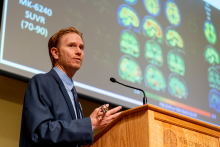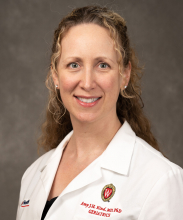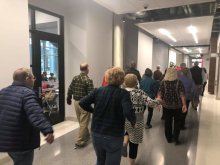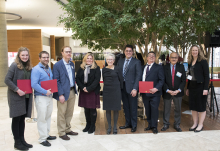
Megan Zuelsdorff, PhD, a postdoctoral fellow at the Wisconsin ADRC, accepted a position as a tenure track assistant professor with the University of Wisconsin School of Nursing, beginning August 2019. Since 2016, Dr. Zuelsdorff has been closely affiliated with the Wisconsin ADRC as a member of the Okonkwo lab, led by Dr. Ozioma Okonkwo, and most recently as a scientist on Dr. Carey Gleason's African Americans Fighting Alzheimer's in Midlife (AA-FAiM) study.
Dr. Zuelsdorff has built...












